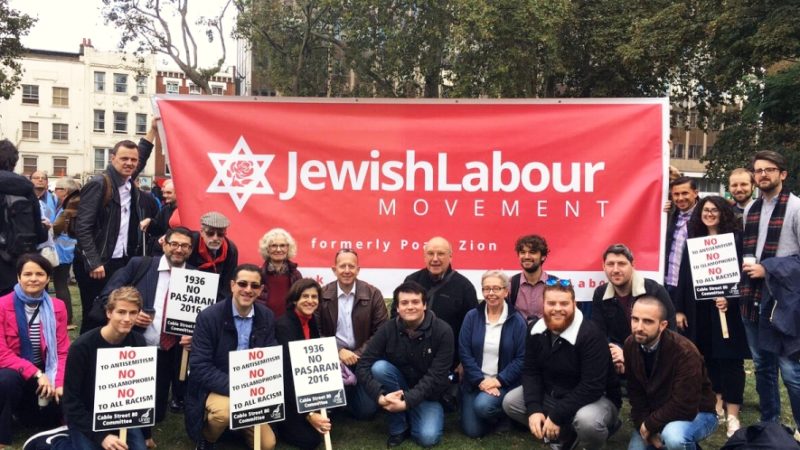
On Tuesday, the Equality and Human Rights Commission announced a full statutory inquiry into anti-Jewish racism in the Labour Party, making Labour the second party after the BNP to be investigated by this body. This was a shameful day for the Labour Party. Yet the response from Yasmine Dar, a member of Labour’s national executive committee, was not one of shame or solidarity. Instead, she attempted to undermine the EHRC, deny the scale of the problem in Labour and committed blatant whataboutery in an article that ironically condemned ‘political point scoring’.
The article kicks off with the statement that the author does not believe antisemitism in the Labour Party is an institutional problem. This claim is breathtaking. I have had Labour members spout blatant antisemitism to my face – from someone describing himself as a left-wing Hitler to another claiming that Jewish politicians act on behalf of foreign powers. I have been harassed in meetings, abused on social media and had to justify the racism that I have experienced countless times.
This is part of a wider, toxic culture that has enveloped the party at every level. It includes Jewish Labour Movement training being rejected by a local party due to the affiliate’s “possible links with ISIS”. Motions passed at a local level that condemned Labour MPs for attending the ‘Enough is Enough‘ rally. A member of Labour’s ruling body, the NEC, ranting about “Jewish Trump fanatics“. The party leader claiming that despite living here for most of their lives, Zionists do not understand “English irony“.
This culture is coupled with a broken disciplinary system. Ken Livingstone managed to escape expulsion despite his frequent claims about Hitler supporting Zionism. It has been reported that members of Jeremy Corbyn’s office have intervened to lift suspensions. And I cannot count the number of people I know who have submitted an antisemitism complaint and never heard back.
Yasmine calls for the EHRC to also investigate the Conservative Party, which the Muslim Council of Britain has pushed for. This is a position that I fully support, as countless news stories have shown the Conservative Party is undoubtedly institutionally Islamophobic. But Yasmine appears to claim that the EHRC has not investigated the Conservatives for political reasons. She provides no evidence to support this suggestion, which seems to be based on a misunderstanding of how the EHRC operates.
The EHRC acts when it believes that unlawful acts have occurred. A Labour NEC member opposing the suspension of a Holocaust denier says nothing about the state of the Tory Party, just as Boris Johnson’s Islamophobic rhetoric says nothing about Labour. Both parties should be investigated by the EHRC, not because of ‘fairness’ or impartiality, but because both have serious problems with racism.
Despite calling for the inquiry to be extended to the Conservatives, much of the article appears to attempt to undermine the EHRC. This is at odds with calls for the body to investigate the Conservatives, and seems to be nothing more than a way to deny that the Labour Party is the problem.
The rest of the piece aims to deny that Labour has an institutional antisemitism problem. Using statistics about Labour and Tory voters (groups that are distinct from members) to claim that the Conservatives are more antisemitic than Labour shows at best a misunderstanding of institutional racism. Statistics on what voters think do not reveal the toxic environment that exists in so many CLPs. It doesn’t disclose that the leader’s office interfered with the disciplinary process to help Glyn Secker, nor does it expose the antisemitic abuse so many Jewish members are subject to both online and in person, nor does it impart that a pregnant Jewish MP was bullied out of the party.
The Chakrabarti inquiry is highlighted as an example of Labour taking tougher action on racism than the Conservatives. Firstly, it cannot be emphasised enough, the EHRC inquiry into the Labour Party has nothing to do with the Conservative Party. Secondly, this ignores that much of the Jewish community saw the Chakrabarti report as a whitewash, not helped by the chair’s almost immediate peerage and shadow cabinet appointment.
Many of the implemented Chakrabarti recommendations have actually made matters worse. Previously, anyone under investigation by the Labour Party was suspended – this was changed by the NEC based on the Chakrabarti report’s recommendations. This meant, for instance, that Holocaust denier Alan Bull was able to stand as a council candidate.
The only point at which a serious problem is acknowledged in the piece? When it is used to shift the blame onto the ‘Labour right’, using emails leaked to Buzzfeed to back up the claim that the complaints team sat on cases to destabilise Corbyn. And yet looking at the emails themselves, ignoring the spin, the only evidence provided is of certain cases being dealt with too slowly, which was already known. There is nothing in the text of the emails to suggest that this was malicious or politically motivated.
Far more damning were the emails leaked to the Sunday Times that revealed Labour official Thomas Gardiner had blocked the suspension of Kayla Bibby, who shared a blatantly antisemitic image from a far-right website, and staffer Laura Murray had only recommended investigation – not suspension – of a Holocaust-denying member who was later arrested as part of a police inquiry into antisemitism.
The EHRC inquiry will uncover the depths of the rot within the Labour Party. It is scandalous that this investigation has to take place, and it is shameful that a member of the national executive seeks to deny the scale of the racism faced by Jewish members. The Jewish Labour Movement has now put out a second call for evidence – if you have information that may be relevant to the EHRC, please contact JLM in confidence.




More from LabourList
A gory night for Labour
‘SEND reforms are a crucial test of the opportunity mission’
Delivering in Government: your weekly round up of good news Labour stories